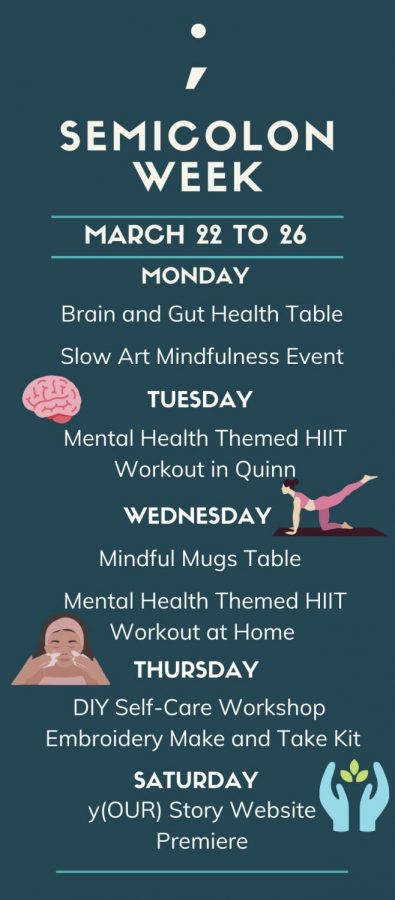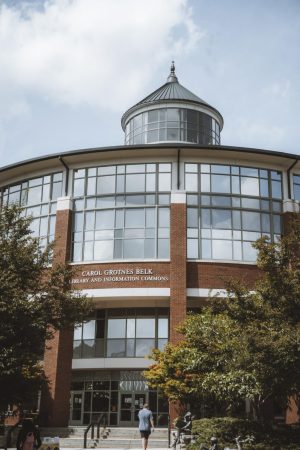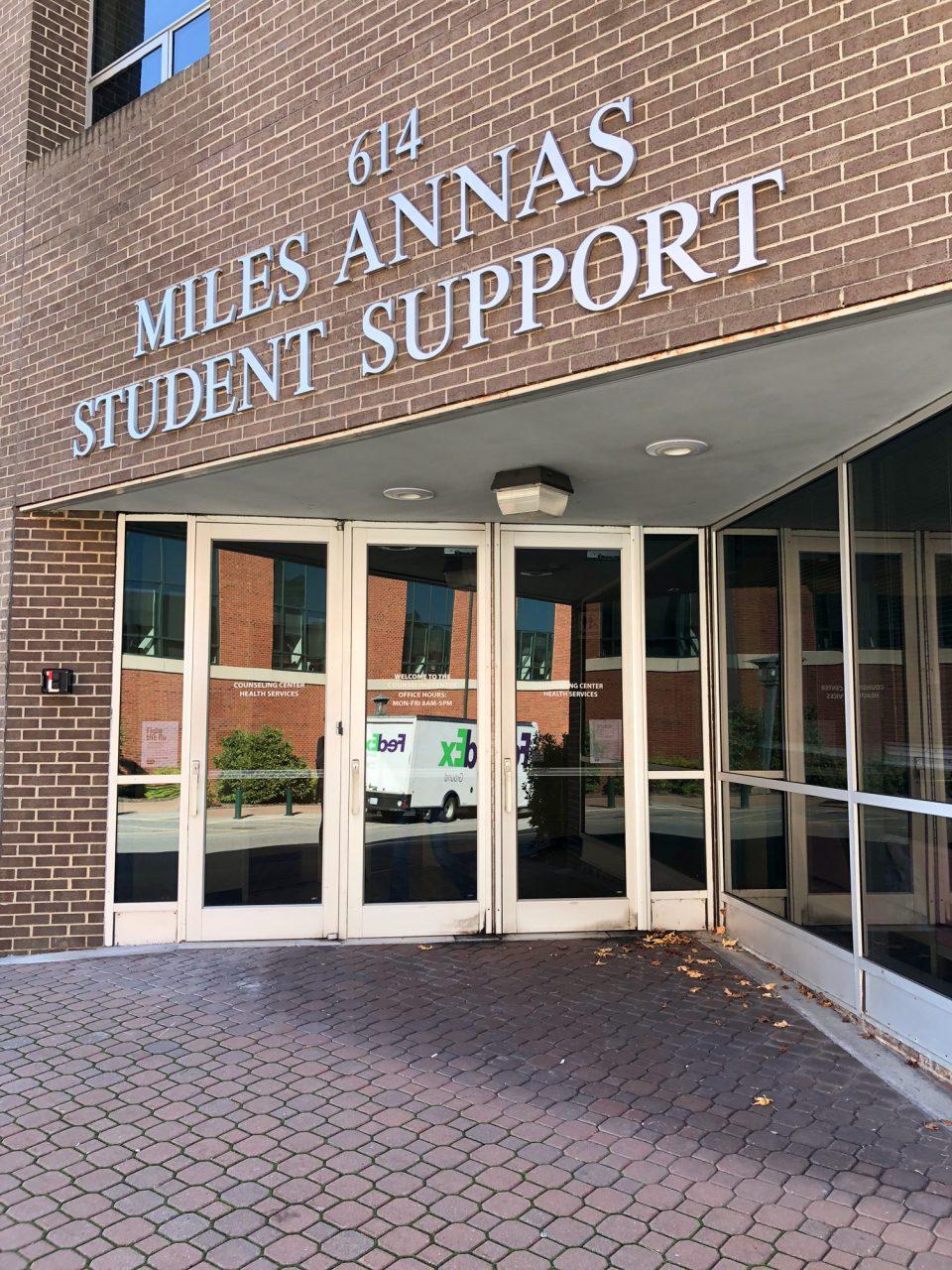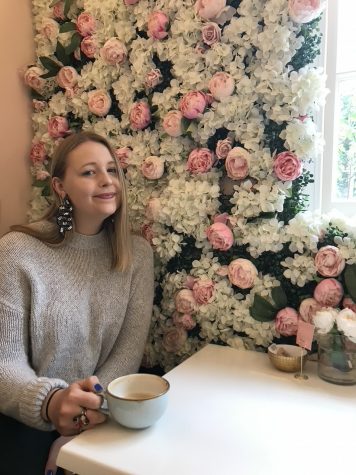Students explore mental well-being in annual Semicolon Week
April 2, 2021
From tabling in the student union to a virtual production highlighting stories about students’ mental health, Semicolon Week aims to educate and provide resources to students to address their mental well-being.
App State’s Wellness & Prevention Services has hosted the annual events for seven years. This year, the event was held from March 22 to 26 and each day featured an event focusing on mental health education.
The Semicolon Project is a nonprofit aiming to reduce suicide and advocate for mental health. The project explains that “a semicolon is used when an author could’ve chosen to end their sentence, but chose not to. The author is you and the sentence is your life.”
“The Semicolon Project is something that resonates with people … we want to engage in things that help your mind and allow you to learn more about how to take care of your mental health,” said Elisabeth Cavallaro, assistant director and coordinator for student mental well-being at Wellness & Prevention Services.
Despite the ongoing pandemic, Cavallaro found creative ways to show students support this year. Semicolon Week included a virtual slow-art mindfulness event, a DIY craft event, and Y(our) Story, where artists, actors and poets performed various stories about mental health.
On Monday night, participants viewed an art piece for an hour before presenters led them through a reflection on breathing techniques, intentional observation and discussion afterward.
Wellness & Prevention also partnered with University Recreation for the event. UREC hosted two high-intensity interval training workouts for Semicolon Week, one virtual and one in person. UREC instructors shared resources with participants at the beginning of each class and stressed the importance of exercise for mental health.
“Exercise is a constant reminder that we are capable of doing the hard things,” said Gabby Dickey, assistant director of fitness and wellness at UREC. “When we overcome challenges, be it in the classroom or the gym, we come through the other side with more confidence and a renewed sense of resilience.”
While mental well-being is the priority for Wellness & Prevention Services, COVID-19 has increased the need for stress-release outlets and resources for students.
“We need to prioritize our mental health, and sometimes it can fall to the back burner,” Cavarallo said. “March seems to be a time in the semester where students’ struggles are bubbling up.”
Another way Cavallaro is making Semicolon Week accessible is through a slideshow presentation Wellness & Prevention Services posted on a faculty announcement page for faculty to play before classes.
“I wanted to make this week as easy to access as possible,” Cavarallo said. “The PowerPoint has a few different tips people can use to maintain their mental health. Even if that’s the only thing they see during Semicolon Week, they at least got some information about mental health.”
While Semicolon Week has wrapped up, there are resources available all year at Wellness & Prevention Services and online. You can find the Semicolon Week slideshow and the Y(our) Story performances and other resources for addressing your emotional needs from Wellness & Prevention Services online.
















